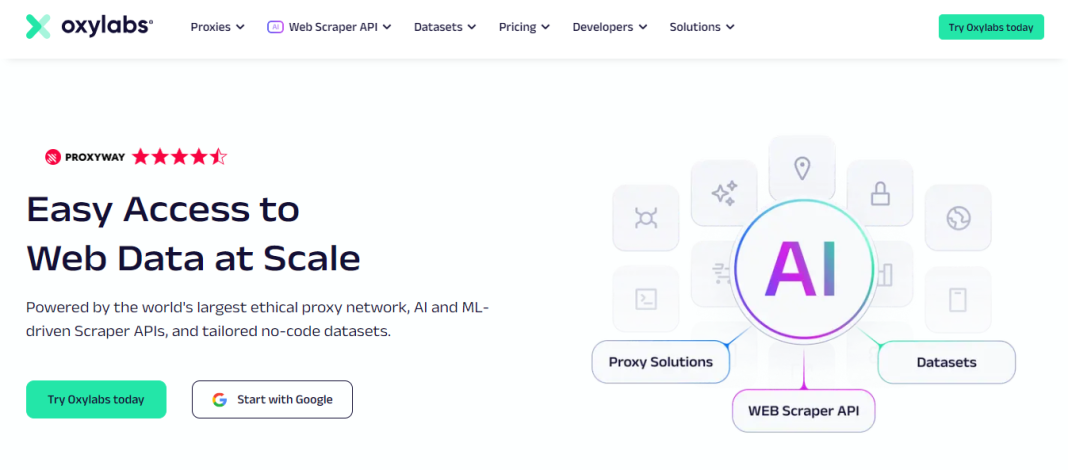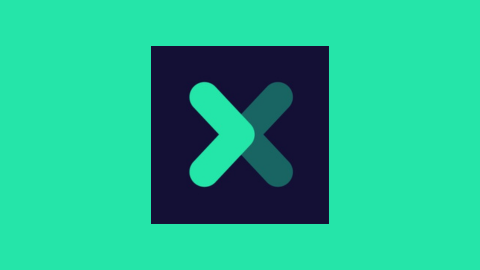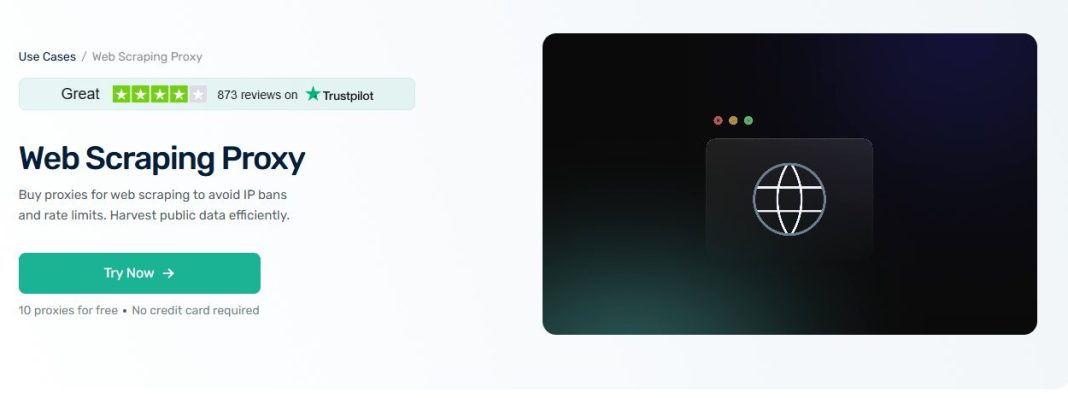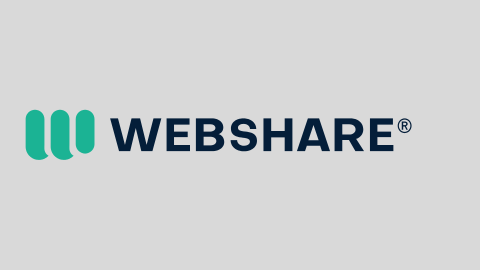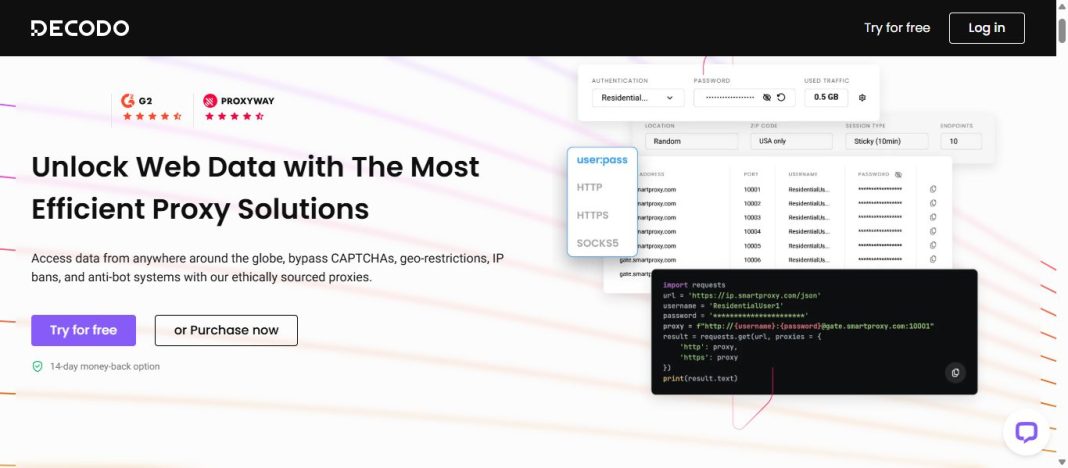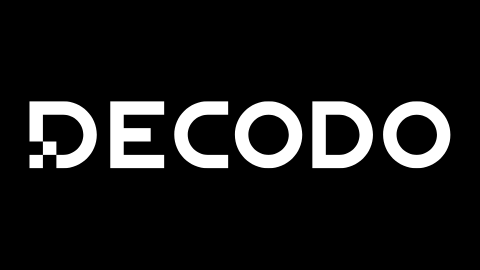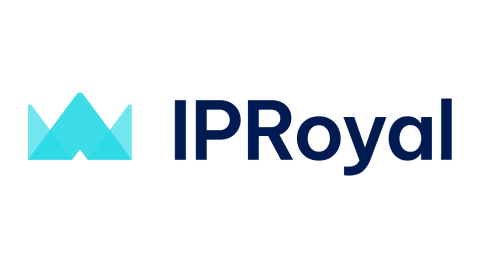Are you looking for a Google scraper? Learn how to ethically and efficiently extract search data in this post.
In today’s fast-moving digital economy, data is the new gold. Businesses that have access to accurate, timely, and relevant information hold the keys to innovation, growth, and competitive advantage.
One of the richest sources of publicly available data is Google, the world’s most powerful search engine. However, retrieving this data manually is tedious, limiting, and far from scalable.
Enter the world of Google scraping—a method of extracting search engine data automatically through a Google scraper. While scraping is not a new technique, the rise of sophisticated tools, ethical standards, and rotating proxy infrastructures have made it more robust, reliable, and widely adopted than ever before.
In this article, we’ll explore what a Google scraper is, how it works, use cases across industries, legal and ethical considerations, and finally, we’ll highlight the top tools in this space that are changing the scraping landscape.
Table of Contents
What is a Google Scraper?
A Google scraper is a software tool or API that automates the process of extracting search results and associated metadata from Google’s Search Engine Results Pages (SERPs). These tools can gather:
- Search query results (titles, URLs, snippets)
- Keyword suggestions
- Ad data
- Image/video search results
- Local listings (Google Maps, GMB)
- News and trends data
Rather than manually copying each entry, the scraper mimics a real user and collects large-scale information for analysis.
How Does a Google Scraper Work?
A typical Google scraping process involves:
- Initiating a Query – The tool sends a search request to Google, just like a human user would.
- Rotating IPs/Proxies – To prevent detection or bans, scrapers use rotating proxies or residential IPs to mimic multiple users.
- Parsing the HTML/JSON – Once Google returns the search page, the scraper extracts relevant data.
- Structuring the Data – Information is sorted into usable formats such as CSV, JSON, or database entries.
- Storing & Analyzing – The final structured data is stored for analysis, reporting, or feeding into other systems.
Use Cases of Google Scraping
1. SEO & Keyword Research
Marketers use Google scrapers to analyze rankings, discover high-volume keywords, study competitors, and uncover content gaps.
2. Price Monitoring
E-commerce businesses track competitors’ pricing strategies, discounts, and availability on Google Shopping.
3. Brand Monitoring & Sentiment Analysis
Companies scrape news, blog, and review listings tied to their brand to track sentiment and detect reputational risks.
4. Ad Intelligence
Digital advertisers scrape Google Ads placements to identify competitor ad copy, bidding strategies, and landing pages.
5. Academic & Trend Research
Researchers scrape Google for scholarly data, publication trends, and public opinion on timely subjects.
Legal & Ethical Aspects of Google Scraping
Scraping publicly available data is legal in many jurisdictions, especially when it doesn’t bypass authentication or access private data.
However, Google’s Terms of Service discourage automated scraping of their platform. This puts scrapers in a grey zone of being technically possible but contractually restricted.
To stay compliant:
- Do not overload Google’s servers (respect rate limits).
- Avoid personal data unless permission is granted.
- Use ethical scraping practices (no spam, no phishing).
- Rely on a reputable proxy infrastructure.
This is where trustworthy providers like Oxylabs, Webshare, and Decodo come in—offering dedicated scraper APIs and legal-compliant infrastructure.
Top 3 Google Scraping Providers You Can Trust
1. Oxylabs – Enterprise-Grade Web Scraping Infrastructure
Oxylabs is a leader in data extraction solutions. Their SERP Scraper API is built specifically for Google and includes cutting-edge features:
- Real-Time Results – Get fresh SERP data without waiting or reloading.
- Geo-Targeted Queries – Scrape Google results by city, country, or language.
- 100% Success Rate – Their infrastructure avoids CAPTCHAs, IP bans, and content filtering.
- ML-Powered Parsing – Structured output saves time and development costs.
Oxylabs also provides 24/7 support and legal guidance to help companies stay compliant. Their infrastructure is perfect for companies that need scale, accuracy, and ethical assurance.
Oxylabs’ strong positioning in the proxy and scraping industry makes them ideal for enterprise-scale Google scraping operations that require consistency, speed, and compliance.
➡ Best For: Enterprises, digital agencies, and large research institutions.
2. Webshare – Affordable & Flexible Proxy Networks
Webshare offers a dynamic scraping solution that caters to both small businesses and mid-level developers. While they specialize in providing residential and datacenter proxies, their infrastructure works seamlessly with most Google scrapers.
Key Features:
- High-Speed Datacenter Proxies – Ideal for bulk scraping with minimal latency.
- Affordable Pricing – Ideal for startups, students, and developers on a tight budget.
- User-Friendly Dashboard – Easily manage IPs, sessions, and bandwidth.
Webshare stands out for allowing fine-tuned control over your proxy rotation settings. They also offer API integration and multiple authentication methods.
➡ Best For: Budget-conscious developers and agencies needing flexible, reliable proxy options for scraping.
3. Decodo (Formerly Smartproxy) – Next-Gen Data Access Platform
Decodo, formerly known as Smartproxy, recently rebranded with a broader vision: to empower businesses with ethical and efficient access to public data.
Their SERP scraping capabilities are streamlined through a no-code/low-code platform and developer-friendly APIs.
Key Advantages:
- Plug & Play SERP API – Perfect for scraping Google search results, ads, and shopping listings.
- Worldwide Location Targeting – Customize queries based on target geography.
- Pay-As-You-Go or Subscription – Transparent pricing to suit all needs.
- Reliable Infrastructure – Avoids IP bans and detection.
Decodo retains Smartproxy’s signature reliability but expands with better analytics, monitoring, and scalability options. It’s a rising star for both developers and data teams.
➡ Best For: Startups, tech teams, and product managers needing scalable, easy-to-use scraping tools.
| Feature | Oxylabs | Webshare | Decodo |
|---|---|---|---|
| Best for | Enterprise use | Budget use | Scalable scraping |
| Location Targeting | Yes | Limited | Yes |
| Structured Output | Yes | No | Yes |
| Proxy Type | Residential, Mobile | Datacenter & Residential | Residential, ISP, Mobile |
| API Access | Advanced | Basic | Easy-to-use |
| Support | 24/7 | Business hours | 24/7 |
1. IPRoyal – Reliable and Cost-Effective Proxy Solutions
IPRoyal has carved out a niche for itself by offering high-quality proxies with impressive stability, particularly for scraping tasks like Google SERP data extraction. What makes IPRoyal unique is its ethical residential proxy pool, consisting of real users who have consented to share their IPs. This results in high trust scores and low block rates when scraping Google, even at scale.
Their residential proxies are ideal for SERP scraping because they mimic real users from different geographical locations. IPRoyal also supports static residential, datacenter, mobile, and ISP proxies, allowing businesses to tailor their scraping setup based on need and budget.
The dashboard is simple and intuitive, and pricing is among the most competitive on the market, especially for startups and freelancers. With location targeting, session control, and bandwidth-based billing, IPRoyal offers flexibility and efficiency without the complexity.
➡ Best For: Startups, solo scrapers, and marketers needing low-cost, high-quality proxies for Google scraping.
2. Bright Data (formerly Luminati) – The Most Powerful Scraping Infrastructure
Bright Data is a premium proxy and data collection platform used by major Fortune 500 companies. Known for its vast pool of over 72 million residential IPs, it provides an incredibly powerful infrastructure for scraping Google search results.
Bright Data offers a dedicated SERP API, a Web Unlocker, and tools like Bright Data Collector, which can build no-code scraping flows without writing a single line of code. For those who prefer a hands-on approach, they provide advanced SDKs, full IP rotation control, and proxy chain features.
What sets Bright Data apart is its regulatory compliance, detailed documentation, and real-time performance dashboards. Their proxies bypass CAPTCHAs and blocks with ease, making them ideal for enterprise-level scraping with a strong legal and technical backbone.
➡ Best For: Enterprises, research firms, and teams that require large-scale, automated scraping with maximum control.
3. NetNut – Static Residential IPs with Exceptional Speed
NetNut offers a hybrid solution combining static residential IPs directly sourced from ISPs with the stability of datacenter proxies. This makes them a top-tier choice for scraping Google SERPs where speed and consistency are critical.
Unlike many providers who rotate IPs too frequently, NetNut allows you to maintain sticky sessions, which is ideal when scraping multiple pages of Google results from the same region. With no reliance on peer-to-peer networks, their proxies are highly stable and immune to sudden disconnects or bans.
They also provide global coverage, including rare countries, and a detailed analytics dashboard. Their infrastructure is built for performance, making them suitable for both high-volume and stealth-mode scraping.
➡ Best For: Power users who need fast, stable proxies with low latency for sustained scraping sessions.
4. ResiProx – Real Residential Proxies with Chrome Integration & Instant Access
ResiProx stands out for offering one of the most seamless scraping experiences, especially for Google search tasks, thanks to its real residential IPs and a user-friendly Chrome Proxy Extension.
Unlike many services that require complex setups or API configuration, ResiProx allows you to connect instantly to a residential proxy via browser—ideal for real-time scraping and testing without coding.
What makes ResiProx powerful for Google scraping is its pool of ethically-sourced, peer-to-peer residential IPs that rotate dynamically, mimicking organic traffic and reducing the risk of CAPTCHAs and IP bans. It supports geotargeting by country and session persistence, giving users granular control over scraping behaviors.
ResiProx also offers flexible pricing without monthly minimums, making it accessible to both solo users and scaling businesses. Whether you’re scraping SERPs, local SEO data, or automating browser tasks, the https://resiprox.com/chrome-proxy/ ResiProx Chrome Proxy Extension makes ResiProx a plug-and-play option with high success rates.
➡ Best For: Non-coders, SEOs, and agile teams needing a fast, no-fuss residential proxy solution directly in Chrome for efficient Google scraping.
5. SOAX – Clean Residential and Mobile Proxy Pools
SOAX focuses on delivering high-quality, clean, and regularly verified residential and mobile proxies. With over 8.5 million IPs, SOAX ensures you get minimal bans and high accuracy for scraping sensitive search engines like Google.
Their proxies are perfect for localized scraping. You can filter by city, region, or ISP to simulate any type of user behavior, which is crucial when pulling region-specific Google SERP data. The platform is also built for transparency, with real-time usage reports and easy account controls.
Their unique IP rotation logic and session control tools make SOAX particularly effective for long-form data collection where consistency is key. Their support team is responsive and often cited as one of the best in the proxy industry.
➡ Best For: Agencies and freelance scrapers needing precision targeting for localized SERP scraping.
READ ALSO: 10 Best Residential Proxy Providers
6. GeoSurf – Geo-Specific, Stable Residential IPs
GeoSurf is another veteran in the proxy space, offering millions of residential IPs across more than 130 countries. Their dashboard allows users to choose from a wide range of cities and ISPs, making it easy to scrape Google as if you’re in a specific location.
What makes GeoSurf stand out is its low churn rate—the proxies maintain long-lasting sessions, which is essential for scraping paginated search results or performing advanced scraping tasks like People Also Ask (PAA) or News sections.
They also provide a browser extension, mobile SDKs, and a VPN-like experience for testers and developers. GeoSurf isn’t the cheapest, but its quality and compliance with legal standards make it trustworthy for long-term projects.
➡ Best For: Professionals who prioritize geo-targeting accuracy and long-session scraping stability.
7. ProxyEmpire – Budget-Friendly Residential and Mobile Proxies
ProxyEmpire is one of the newer players in the proxy industry, but it’s quickly gaining popularity due to its generous bandwidth pricing and wide range of features. It offers both residential and mobile proxies, ideal for scraping search engines like Google, which tend to block repeated traffic.
With global targeting, session control, and automatic IP rotation, ProxyEmpire helps you stay under Google’s radar. They even allow unused bandwidth to roll over to the next month, which is excellent for small businesses or those running seasonal scraping campaigns.
Although it’s not as large-scale as Oxylabs or Bright Data, ProxyEmpire offers a high ROI for anyone seeking affordable, reliable, and ethical scraping solutions.
➡ Best For: Freelancers, bloggers, and small agencies with modest but frequent scraping needs.
📊 Summary Table
| Provider | Key Strengths | Best For |
|---|---|---|
| IPRoyal | Ethical, budget-friendly, rotating IPs | Solo scrapers and budget-conscious users |
| Bright Data | Enterprise-level, massive IP pool | Corporations and high-scale automation teams |
| NetNut | Static IPs, high speed | Continuous scraping and session stability |
| ResiProx | Chrome extension, real residential IPs, easy setup | Non-coders, SEOs, and agile teams scraping Google in-browser |
| SOAX | Precision targeting, clean IPs | Localized scraping and accurate geodata |
| GeoSurf | Geo-accurate, long sessions | Market researchers and location testing |
| ProxyEmpire | Cost-efficient, bandwidth rollover | Freelancers and small data operations |
How to Choose the Right Google Scraper Tool
When choosing the ideal Google scraper or scraping service provider, consider the following:
- Data Volume – How much data do you need daily/weekly/monthly?
- Target Geography – Do you need localized search results?
- Output Format – Does the tool provide structured JSON/CSV data?
- Support & SLAs – Is technical support available 24/7?
- Legal Compliance – Does the provider help you stay ethical and within legal limits?
Best Practices for Using a Google Scraper
- Use Headless Browsers: Simulate real browser behaviour to avoid detection.
- Implement IP Rotation: Don’t bombard Google from a single IP—rotate often.
- Use Proxies Wisely: Rely on residential or mobile proxies from ethical providers.
- Respect Robots.txt: Always review and honor Google’s crawling policies.
- Monitor for CAPTCHA: Use anti-CAPTCHA strategies or APIs to bypass blocks.
- Avoid Over-Scraping: Set reasonable delays between requests to remain stealthy.
Google Scraper: Frequently Asked Questions
Is scraping Google search results legal?
Scraping public Google SERP data is typically legal as long as you’re not violating Google’s terms of service or using the data for malicious purposes. However, it’s important to avoid scraping personal, copyrighted, or sensitive data.
Many companies use proxy and scraper APIs for competitive intelligence, SEO, and data analysis—just ensure you’re in compliance with local laws and regulations in your region.
What is the best type of proxy for Google scraping?
Residential proxies and ISP proxies are generally the best for Google scraping because they resemble real user traffic and are less likely to be blocked. Datacenter proxies are faster but often get flagged.
Using rotating residential proxies, like those from Oxylabs, Webshare, or Decodo, can greatly improve your success rate and reduce the chances of encountering CAPTCHAs or bans.
How can I avoid getting blocked while scraping Google?
To avoid blocks while scraping Google:
- Use rotating residential or ISP proxies
- Implement human-like browsing behavior (random delays, headers, etc.)
- Rotate user agents and IP addresses frequently
- Scrape during off-peak hours
- Respect rate limits and avoid excessive requests
Using a Google Scraper API like the one from Oxylabs or Bright Data can automate these protections for you.
Why do I need a Google scraper when I can search manually?
Manual searches are time-consuming and limited. A Google scraper allows you to extract thousands of search results across different keywords, regions, and formats (e.g., text, images, news, maps) automatically. This is essential for SEO audits, keyword research, trend analysis, and competitor tracking—especially when managing data at scale.
What’s the difference between a web scraper and a scraper API?
A web scraper is usually a custom-built script or tool that extracts data from websites like Google. A scraper API, on the other hand, is a ready-made solution hosted by a provider (e.g., Webshare or Decodo) that handles IP rotation, CAPTCHA solving, and data formatting. APIs are more reliable and scalable, especially if you want clean data fast without managing infrastructure.
Conclusion: Google Scraping Done Right
In a world flooded with information, the ability to access structured, real-time Google data gives businesses a serious edge. Whether you’re tracking search trends, monitoring competitors, or building your SEO empire, a reliable Google scraper is your secret weapon.
That said, how you scrape is just as important as what you scrape. Using reputable, ethical, and well-supported solutions like Oxylabs, Webshare, and Decodo ensures you’re building your data pipeline the right way.
They’re not just tools—they’re partners in building your business intelligence ecosystem.
Ready to start your ethical Google scraping journey?
Choose a trusted provider. Implement best practices. Respect the source. And let the data flow.
INTERESTING POSTS
About the Author:
Daniel Segun is the Founder and CEO of SecureBlitz Cybersecurity Media, with a background in Computer Science and Digital Marketing. When not writing, he's probably busy designing graphics or developing websites.





